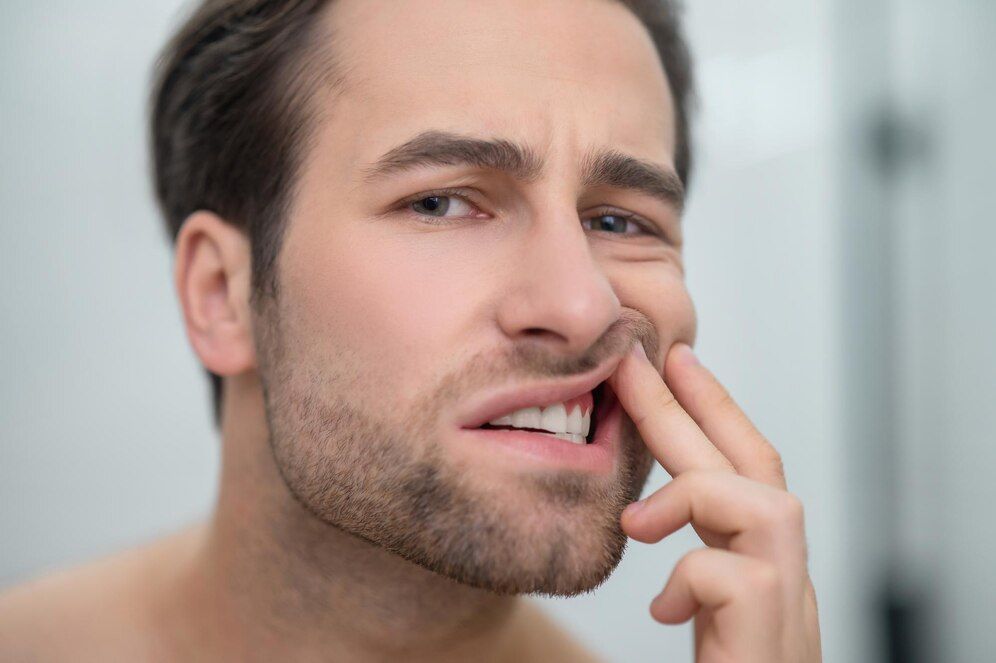Exploring the Connection Between Teeth Grinding and Sleep Disorders

Teeth grinding, or bruxism, is the involuntary clenching and grinding of teeth that often occurs during sleep. Left untreated, bruxism can lead to a wide range of dental and oral health issues, including tooth fractures, jaw disorders, and even the loss of teeth.
At Pittsburgh Dental Sleep Medicine, our goal is to help individuals identify and address the underlying causes of their teeth grinding, ensuring these unwanted consequences are mitigated and overall wellbeing is improved.
Interestingly, there exists a strong connection between teeth grinding and sleep disorders, such as Obstructive Sleep Apnea (OSA). Bruxism can be both a contributing factor and a side effect of sleep-disordered breathing, creating a complex and intertwined relationship that demands careful evaluation and a comprehensive approach to treatment.
In this in-depth guide, we will explore the link between teeth grinding and sleep disorders, delving into the theories behind this interconnection, the potential implications for individuals suffering from these conditions, and the available treatment options that can improve dental health and sleep quality simultaneously. Our aim is to empower patients with the knowledge and resources necessary to make informed decisions about their dental and sleep health, promoting a brighter, more restorative nighttime experience.
The Connection Between Bruxism and Sleep Disorders
The connection between bruxism and sleep disorders is multifaceted and complex, involving a range of physiological, psychological, and lifestyle factors. Here are some key considerations that help to elucidate the relationship between teeth grinding and sleep-disordered breathing:
1. Sleep-Related Bruxism: Many individuals experience an increase in teeth grinding during sleep, particularly during periods of lighter or disrupted sleep. This increased activity may be triggered by the body's attempt to maintain an open airway and compensate for sleep-disordered breathing.
2. Arousals and Neural Pathways:
Sleep disorders such as OSA can result in frequent disruptions to the normal sleep cycle, leading to frequent arousals and heightened neural activity. These frequent arousals may provoke the muscles in the jaw to contract, causing teeth grinding.
3. Stress and Anxiety:
Sleep disorders and teeth grinding are both linked to heightened levels of stress and anxiety, which can exacerbate each condition independently or in tandem.
4. Temporomandibular Joint (TMJ) Dysfunction:
Bruxism can contribute to TMJ disorders, which in turn can negatively impact the airway, increasing the likelihood of sleep-disordered breathing.
Identifying Bruxism and Sleep Disorders
Recognizing the signs and symptoms of bruxism and sleep disorders is critical for early intervention and treatment. Some common indicators to watch for include:
1. Morning Headaches:
Waking with a headache could suggest nocturnal teeth grinding or sleep apnea.
2. Jaw Soreness or Pain:
Regular jaw discomfort, clicking, or popping can indicate bruxism or TMJ-related issues.
3. Tooth Sensitivity, Wear, or Damage:
Grinding can cause noticeable tooth wear, chips, or cracks, as well as increased sensitivity.
4. Daytime Sleepiness: Excessive daytime sleepiness or fatigue can suggest the presence of a sleep disorder, like sleep apnea.
5. Snoring:
Chronic snoring can be a symptom of sleep apnea and teeth grinding.
Consulting a dental healthcare professional with expertise in dental sleep medicine is essential for the proper diagnosis and treatment of bruxism and sleep disorders.
Treatment Options for Coexisting Bruxism and Sleep Disorders
Addressing both bruxism and sleep disorders simultaneously requires a comprehensive, individualized treatment plan. Some potential treatment options include:
1. Oral Appliance Therapy:
Custom-fitted oral appliances can help manage both teeth grinding and sleep apnea by repositioning the jaw and stabilizing the bite.
2. Lifestyle Modifications:
Adopting healthier habits such as weight loss, regular exercise, and stress reduction can have positive effects on both bruxism and sleep disorders.
3. Sleep Hygiene:
Establishing a consistent sleep schedule and optimizing the sleep environment can promote better sleep quality and alleviate teeth grinding.
4. Multiwave Locked System (MLS) Laser Therapy:
This innovative therapy offers potential relief for TMJ dysfunction and associated issues, including bruxism and sleep disorder breathing.
5. Medication and Supplements:
In some cases, prescription medications or over-the-counter supplements might be recommended to alleviate anxiety, stress, or sleep disturbance related to bruxism and sleep disorders.
The Importance of Comprehensive Dental and Sleep Health Evaluations
Thorough dental and sleep health evaluations by experienced dental sleep medicine professionals are essential for accurately diagnosing and effectively treating coexisting bruxism and sleep disorders. Key components of these evaluations may include:
1. Medical and Dental History: Assessing your medical and dental history will help your dental healthcare professional identify potential risk factors and contributing factors for bruxism and sleep disorders.
2. Clinical Examination:
A comprehensive dental and oral examination will be conducted to assess dental health, TMJ function, and airway patency.
3. Sleep Study:
A sleep study, either conducted at home or in a sleep lab, might be recommended to diagnose sleep-disordered breathing and assess the severity of any sleep disorders present.
4. Patient-Centered Treatment Plan:
Based on the results of these evaluations, your dental healthcare professional will develop a personalized treatment plan tailored to address both your bruxism and sleep disorder concerns.
Final Thoughts
Understanding the link between teeth grinding (bruxism) and sleep disorders is paramount for effectively addressing both conditions and promoting overall dental and sleep health. Through comprehensive evaluation, diagnosis, and personalized treatment planning, patients facing coexisting bruxism and sleep disorders can experience significant improvement in their sleeping patterns, dental health, and overall quality of life.
At
Pittsburgh Dental Sleep Medicine, our dedicated team of dental sleep doctors are committed to helping patients tackle bruxism and sleep disorders through exceptional care, education, and innovative treatments.
If you or a loved one are concerned about the link between your teeth grinding symptoms and a potential sleep disorder, contact our doctors today for a consultation and take the first step towards better dental health, improved sleep, and a more tranquil night's rest.

